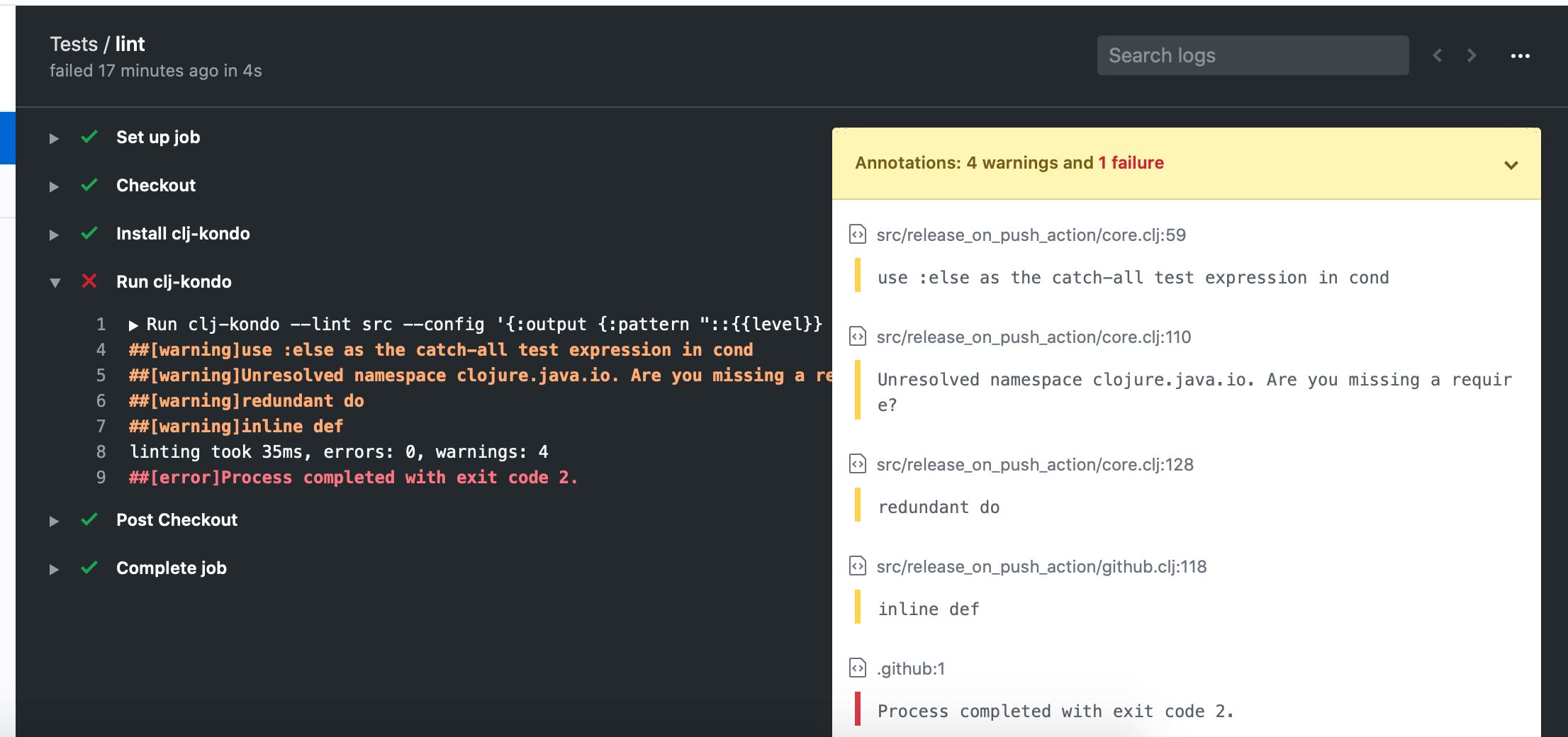Code Analysisλ︎
clj-kondo is a lint tool that highlights syntactic errors and suggests idioms for Clojure, ClojureScript and EDN.
Use clj-kondo with your preferred editor to warning about errors as you type so issues can be fixed as soon as they occur, enhancing your joy of Clojure.
clj-kondo can also be used as a command line tool for checking projects in development environments and continuous integration service, such as the setup-clojure GitHub action.
Clojure LSP includes clj-kondo
Clojure LSP install includes clj-kondo, removing the need for a separate install of clj-kondo
Installλ︎
Follow the clj-kondo install guide for your operating system.
Clj-kondo config contains additional configuration for using clj-kondo with libraries that extend the Clojure language via macros.
clj-kondo can be used if cider is configured as the clojure layer backend. If LSP is configured as the backend, should not be used as it may duplicate analysis results (e.g. doubling error and warning messgeas).
Use Clojure LSP with Doom rather than clj-kondo by itself.
Add the +lsp feature to the Clojure module and enable the lsp module
Practicalli Neovim provides a guide to configure Neovim with Treesitter as an LSP client, as well as a fennel based configuration for Neovim.
Command Line analysisλ︎
Run clj-kondo with the --lint option and specify a file or path
To analyse a specific file
Analyse a project, running the clj-kondo command from the root of the project

